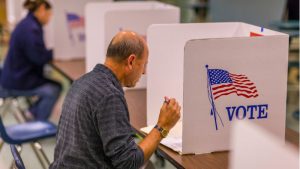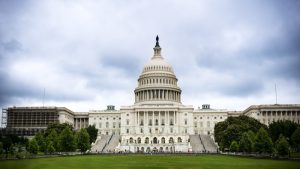The Cybersecurity and Infrastructure Security Agency (CISA) remains highly confident in the agency’s efforts to defend against nation-state cyber threats including those targeting U.S. elections and supply chains, a senior CISA official said today.
Colorado Secretary of State Jena Griswold announced Sept. 16 that the state will remove QR (a type of matrix barcode) codes from its ballots ahead of the 2020 general election. The state said removal of QR codes will strengthen the security of vote tabulation and ensure that voters are able to accurately verify that their ballots are correctly marked.
Despite a downtick in number of states using paperless voting equipment since 2016, eight states are still expected to use paperless machines in the 2020 election, according to an Aug. 13 Brennan Center for Justice report.
On Monday, Senator Bob Menendez, D-N.J., announced a bill to provide funding to states to safeguard voting systems from cyberattacks. Citing the Robert Mueller report, Menendez demanded that Congress act to secure election infrastructure from foreign adversaries like Russia, Iran, China, and North Korea.
In another effort from Congress to expand transparency in U.S. election systems after, Sens. Ben Cardin, D-Md., Amy Klobuchar, D-Minn., and Chris Van Hollen, D-Md. announced today that they will reintroduce their Election Systems Integrity Act.
A Georgia state election commission voted on Thursday to replace the state’s current electronic voting systems with a computerized system that prints paper ballot receipts.
On their second day in charge of the House, Democrats debuted H.R. 1, the For The People Act, which features a wide range of election security and modernization measures, including cybersecurity standards for voting machines, an election security bug bounty program, and a requirement for online voter registration.
ODNI, DoJ, FBI, DHS Declare Election Interference ‘Top Priority’








